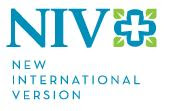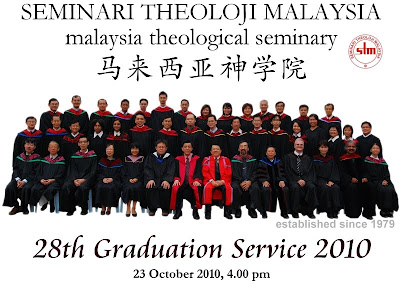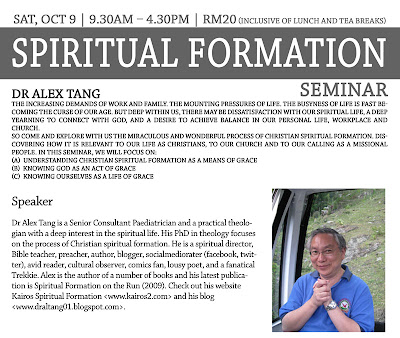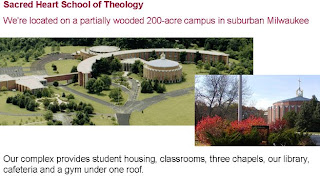This is an article that I wrote recently for a local magazine.
“… an account of the things that have been fulfilled among us…” (Luke 1:1)
The Gospel of Luke begins with an impressive statement anchoring the author’s work within the literary tradition of the Greco-Roman world (Luke 1:1-4). In this prologue, Luke makes a bold claim that the “orderly account” (Luke 1:3) he is narrating is not simply a collection of random historical events, but selective events demonstrating that the life and ministry of Jesus Christ is the fulfillment of the grand narrative of the salvation of God that is rooted in the story of Israel. In his sequel, the Acts of the Apostles, Luke’s narrative of the expansion of the early church and the mission to the Gentiles further displays the fulfillment of God’s redemptive plan for the nations. As such, the fulfillment terminology in Luke-Acts focuses on how the divine plan of salvation is being accomplished through the fulfillment of Old Testament, climaxed in the person and ministry of Jesus the Messiah and, realized in the preaching of the gospel to the nations.
The Story of Salvation as Fulfillment in LukeApart from the prologue where the motif of fulfillment signals Luke’s intention of his narrative, this terminology is extensively used in the infancy narratives of Jesus (see Luke 1:20, 45, 46-55; 2:6, 21, 22, 39, 43). By weaving the language of fulfilment into these accounts, Luke draws attention to the story that the salvation plan of God does not begins with the coming of Jesus. The story of the gospel is a continuation of the story of Israel, with godly characters proclaiming the realisation of the hope of Israel as witnessed in the birth of John the Baptist (Luke 1:19-20) and Jesus the Messiah (Luke 1:31-33; 45-55; 2:1-7).
The beginning of Jesus’ public ministry is introduced with the reading of Isaiah 61:1-2 in the synagogue of Nazareth (Luke 4:18-19). This is followed by the Jesus’ bold declaration that “Today this scripture is fulfilled in your hearing” (Luke 4:21). This pronouncement points to Jesus as the eschatological prophet, fulfilling what the Old Testament discloses about God’s redemptive plan. This direct quotation of Isaiah 61:1-2 subsequently becomes the paradigm of the ministry of Jesus – preaching the good news, proclaiming freedom to the prisoners, recovery of sight to the blind, releasing the oppressed. In the person and ministry of Jesus, the year of the Lord’s favour spoken of in Isaiah is now inaugurated. Further allusion to Isaiah 61:1-2 is seen in the response of Jesus to the disciples of John the Baptist who asked him whether he was indeed the Messiah (Luke 7:18-23). The reply of Jesus not only echoes this Isaianic passage but also anchors his ministry as the anticipated eschatological prophet fulfilling God’s divine plan.
The climax of the ministry of Jesus the Messiah is in the revelation that he “must suffer many things and be rejected by the elders, chief priests and teachers of the law, and he must be killed and on the third day be raised to life” (Luke 9:21. See also 9:31; 18:31-32; 22:15-22, 37). Closely related to Jesus’ Passion prediction is the Transfiguration of Jesus where Moses and Elijah appeared in glory and spoke about Jesus’ “departure”, which he was about to accomplish at Jerusalem (Luke 9:31). The subsequent voice from heaven not only confirms the identity of Jesus as the Son of God but also expresses the need of the disciples to listen to Jesus unfolding his passion and death (Luke 9:35). The events that followed the Transfiguration that led to the betrayal, sufferings, death and resurrection of Jesus are foreordained in God’s drama of salvation, only to be fulfilled as Scripture directs and as Jesus himself outlines (see Luke 18:31, 22:22, 37; 24:25-27, 44-46). Jesus himself declares that “everything that is written by the prophets about of the Son of Man will be fulfilled” (Luke 18:31).
The post-resurrection appearance of Jesus to the two disciples on the Emmaus Road is also narrated in the language of fulfilment. By “beginning with Moses and all the Prophets, (Jesus) explained to them what was said in all the Scriptures concerning himself” (Luke 24:27) by revealing himself as the suffering Messiah (Luke 24:26). Subsequently, Jesus also told the eleven disciples, “Everything must be fulfilled that is written about me in the Law of Moses, the Prophets and the Psalms” (Luke 24:44). Jesus’ conversation with these disciples reveals a grand narrative of God’s plan that is rooted in the Old Testament and how an understanding of the Old Testament and its promises is a necessary prelude for grasping the redemptive and eschatological plan and purpose of God (see Luke 24:25-27, 44-49). The ministry, death and resurrection of Jesus is once again interpreted in the light of Scripture, as clearly declared by the Messiah himself towards the closing of Luke’s Gospel, “This is what is written: The Christ will suffer and rise from the dead on the third day, and repentance and forgiveness of sins will be preached in his name to all nations, beginning at Jerusalem” (Luke 24:46-47).
The Story of Salvation as Fulfillment in ActsThe opening statement of Acts recalls the emphasis of Luke 24 of the plan of God in blessing the nations/Gentiles through the witness of the apostles. This divine plan of salvation will be fulfilled through the preaching of the apostles in Jerusalem (Acts 2-7), Judea and Samaria (Acts 8-11) and to the ends of the earth (Acts 13-28) as outlined in Acts 1:8.
The language of fulfilment in Acts is chiefly found in the numerous speeches recorded. Peter is the first to use this motif in his speech, declaring that the Scripture had to be fulfilled in Judas’ punishment for the betrayal of Jesus and the appointment of Matthias in replacing Judas by quoting Psalms 69:25 and 109:8 respectively (Acts 1:20). Peter’s subsequent speech on Pentecost is couched in the language of fulfilment, announcing God’s great plan of salvation (Acts 2:14-39). The coming of the Holy Spirit at Pentecost is declared as the fulfilment of Joel 2:28-32 while the resurrection and ascension of Christ are proclaimed as the fulfilment of Psalms 16:8-11 and 110:1 respectively. Peter’s subsequent address in the temple precinct makes another significant claim about the fulfilment of Scriptures where Christ’s rejection and sufferings are referenced to Deuteronomy 18:15-19 and Genesis 22:18; 26:4. In addition, this sermon of Peter also introduces a theological overview of God’s narrative of redemption as rooted in the story of Israel, beginning from the story of Abraham, Isaac, and Jacob to the story of Moses, and finally, the story of Israel.
Paul’s first recorded Sabbath speech in the synagogue of Pisidian Antioch focuses on God’s promises in bringing a Saviour in the line of King David (Acts 13:16-41). In his speech, the language of fulfilment appears three times. First, in condemning Jesus to death, “the people of Jerusalem and their rulers…fulfilled the words of the prophets” (Acts 13:27). Secondly, whey they had fulfilled all that was written about Jesus, they took him down from the tree, and laid him in a tomb (Acts 13:29). Thirdly, the resurrection of Jesus is now proclaimed as what “God promised our fathers, he has fulfilled for us, their children” (Acts 13:32). And this resurrection of Jesus is now the good news Paul proclaimed. However, in the following Sabbath, some Jews obstructed Paul and he turned his attention to the Gentiles by evoking Isaiah 49:6 as justification for this move. As such in Acts 13, two major fulfilments of God’s divine salvation plan are unfolded: God’s intention in the death and resurrection of the Messiah and the divine plan in bringing the salvation to the Gentiles.
Paul’s trail speeches in Acts 23:6; 24:10-21 and 26:2-23 further underscores the language of fulfilment. Israel’s hope is fulfilled in the resurrection of the Messiah. Paul’s defence of his apostolic calling to be an apostle to the Gentiles is flashed out in this declaration: ‘I am saying nothing beyond what the prophets and Moses said would happen – that the Christ would suffer and, as the first to rise from the dead, would proclaim light to his own people and to the Gentiles” (Acts 26:22-23). For Paul, everything occurred in accordance with God’s divine plan of salvation.
The ending of Acts again showcases the declaration of the fulfilment of the Scripture in the recording of the events (Acts 28:23-28). This final scene shows Paul trying to persuade people about Jesus both from the Law of Moses and from the Prophets and in which Isaiah 6:9-10 is quoted as reason for taking the gospel to the Gentiles. With this, Luke second volume ends where he begins, with a declaration of the fulfilment of God’s progressive self-revelation initially through the work of the Prophets and finally revealed in his Son. This redemptive story is now being proclaimed by the apostles to both the Jews and the Gentiles. The worldwide expansion of the Gentile mission as disclosed in the Old Testament is now finally being fulfilled.
Concluding RemarksFrom the two-volume work of Luke, past history is not simply a recollection of a series of events but a clear expression of the purpose of God. Divine control of history as unfolded in the story of Israel finds its climatic fulfilment in the story of Jesus Christ in Luke’s writings. Together with references to the plan of God (Luke 7:30; Acts 2:23; 4:28; 5:38-39; 13:36; 20:27), the will of God (Luke 11:2; 22:42; Acts 21:14; 22:14) and to the sovereignty of God (Luke 22:22; Acts 1:7; 10:42; 17:31; 22:14; 26:16), all these point to the story that Luke sees the gospel of Christ not as detached, but as the climax and fulfilment of the redemptive plans of God rooted in the story of Israel. The necessity of Jesus’ rejection and suffering was not an accident in history but part of God’s drama of redemption as revealed in the scripture and promises of God in the Old Testament.
















